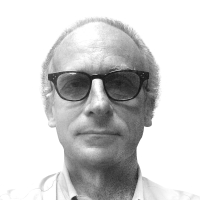The people around Venezuelan president Hugo Chávez announced this week that his pelvic cancer has returned and he will need more treatment. Now the scramble is on to understand just what the news suggests about his future and the future of Venezuela—and the implications across South America for his co-called Bolivarian revolution.

Chávez has not disclosed which sort of cancer he has—an extremely important fact to have in mind when anticipating what’s ahead. Of cancers that might arise in the pelvis, standard prostate cancer is by far the most common type, but if he had prostate cancer, he would not have undergone the therapy he has. Surgery in prostate cancer is reserved for those with local disease confined to the prostate gland itself. Once the cancer has moved outside the prostate and surrounding lymph nodes, chemotherapy and radiation therapy, but not surgery, are the recommended approaches.
The only other cancer likely to appear in the pelvis, other than runaway far-advanced colon, bladder, or kidney cancers, which likely would have killed him by now, is something called sarcoma. The likelihood of sarcoma is further signaled by the winking comments from doctors in neighboring countries. Dr. Carlos Castro, scientific director of the League Against Cancer in Colombia, told the Associated Press, possibly with knowledge though possibly from pure speculation, that the cancer is “behaving like a sarcoma … and sarcoma doesn’t forgive.”
Sarcoma, derived from the Greek word for “flesh,” arises from the parts of us—muscle, blood vessels, lining of joints, cartilage, etc.—that hold us together. These aren’t organs, really, like lungs and livers. There are about 12,000 new cases a year in the United States, making the various collected types of sarcoma slightly more common than Hodgkin’s disease but much less common than more familiar organ-based tumors such as breast, colon, or lung cancer. The sarcoma tumors typically are slow growing but relentless, hewing to an odd paradox in cancer and even infectious diseases—the slower growing an infectious organism or a tumor, the more difficult to eradicate. In contrast, the more rapid growing the tumor, often the more likely it will be cured, though there are countless exceptions on either side of the rule.
Sarcoma is sometimes cured when caught early and resected. Such cancers often occur in the leg or arm, where they are easier to detect. If Chávez has relapsed pelvic sarcoma, he likely will die of the cancer—though again, without any sort of accurate information, this is just the sort of armchair guessing doctors like me should always avoid. Sticking with this assumption, though, as a guy with recurrent disease only 18 months since his last surgery, he likely has a year or two or three left—years of more surgeries, more chemo, more radiation if he can tolerate it, and progressive and painful debility.
Chemo, typically, has some effect, but often not a durable one. In the last few years in the U.S., new interest has developed in novel therapies to treat sarcoma. In addition, oncology now is awash with new and exciting treatments for many cancers, so-called targeted therapies. A common approach is to try agents active against other tumors against a sometimes refractory cancer like sarcoma in hopes of seeing a response.
Chávez may be hoist by his own petard, however. He received his initial treatment in June 2011 in Cuba, and as a true believer in what he has espoused politically, he has (apparently) refused treatment in the U.S. or in Europe, where the possibility exists of a cutting-edge treatment that might benefit him. As a person viewed a scoundrel by much of the West and as a greedy, self-promoting narcissist by many in and out of his country, his illness and inevitable death may well be his most forceful political statement. Tyrants and other global bad guys sometimes blink as the Reaper approaches and fly off to somewhere famous and Midwestern for consultation under an assumed name. But to die in Cuba, where public health is superb but individual care of the extremely rare condition may not be, expressly because he believes in what Cuba is about and in what his vision for Venezuela is, becomes the ultimate example of placing his money (and his life) where his mouth is. The months ahead will show us just how strong is his resolve and how blind his hatred of the West.





